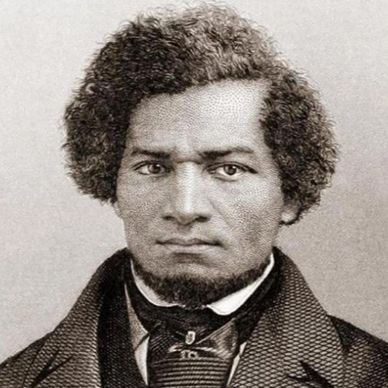AFRICAN AMERICANS & CIVIL WAR
CIVIL WAR & SLAVERY
AMERICAN CIVIL WAR MUSEUM
AA CIVIL WAR MEMORIAL
What caused the Civil War? Did the North care about abolishing slavery? Did the South succeed because of slavery? Or was it about so states rights? Colonel Ty Seidule history professor at West Point settles the debate.
AA CIVIL WAR MEMORIAL
AMERICAN CIVIL WAR MUSEUM
AA CIVIL WAR MEMORIAL
The African American Civil War Memorial honors forgotten American soldiers who fought for freedom during the American Civil War and serves as a reminder of the courageous story of the USCT.
AMERICAN CIVIL WAR MUSEUM
AMERICAN CIVIL WAR MUSEUM
FREDERICK DOUGLASS on the CIVILWAR
The American Civil War Museum explores the Civil War and its legacies from multiple perspectives: Union and Confederate, enslaved and free African Americans, soldiers and civilians.
FREDERICK DOUGLASS on the CIVILWAR
FREDERICK DOUGLASS on the CIVILWAR
FREDERICK DOUGLASS on the CIVILWAR
During the Civil War, Frederick Douglass used his stature as the most prominent African American social reformer, orator, writer and abolitionist to recruit men of his race to volunteer for the Union army.
AAs in the CIVIL WAR
FREDERICK DOUGLASS on the CIVILWAR
BLACK CIVIL WAR SOLDIERS
This HISTORY.NET site provides facts, information, and articles about African Americans in the Civil War.
BLACK CIVIL WAR SOLDIERS
FREDERICK DOUGLASS on the CIVILWAR
BLACK CIVIL WAR SOLDIERS
Explore this link from HISTORY.COM that contains numerous videos, articles, and images on roles African Americans played in the Civil War as soldiers, civilians, and enslaved.
THE ISSUE OF EQUAL PAY
NICK BIDDLE: CIVIL WAR's FIRST BLOOD
SIX BLACK HEROES of the CIVILWAR
This major collection of records of the men who served with the United States Colored Troops (USCT) during the Civil War rests in the stacks of the National Archives and Record Administration (NARA). They are little used, and their content is largely undiscovered.
SIX BLACK HEROES of the CIVILWAR
NICK BIDDLE: CIVIL WAR's FIRST BLOOD
SIX BLACK HEROES of the CIVILWAR
During the Civil War African Americans didn’t just sit on the sidelines. Whether enslaved, escaped or born free, many sought to actively affect the outcome.
NICK BIDDLE: CIVIL WAR's FIRST BLOOD
NICK BIDDLE: CIVIL WAR's FIRST BLOOD
NICK BIDDLE: CIVIL WAR's FIRST BLOOD
Pennsylvania resident Nicholas Biddle (circa 1796-1876) is considered to be "the first man wounded in the Great American Rebellion, Baltimore, April 18,1861."






